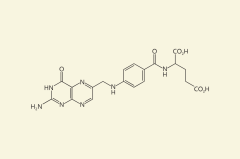Explore the benefits of western herbs like chamomile, marshmallow, milk thistle, bilberry, and withania for humans and pets.
At work, we keep our herbs in a dispensary. It’s a passageway with timber shelves along both sides. There are rows of bottles of herbal tinctures, pots of herbal tablets and supplements and containers of single Traditional Chinese Medicine (TCM) herbs. The TCM formulae are arranged on the opposite wall.
Chamomile (Matricaria recutita)
Chamomile comes from the dried flower heads of the daisy plant. Traditional uses include a soothing tea for diarrhoea, as an eyewash, to treat urinary infections and as an antimicrobial. Research shows that a polysaccharide derived from chamomile has sedative and anxiolytic-like effects.
I use chamomile for dogs with anxiety, poor sleep and for IBD, especially if symptoms include gut spasms. Chamomile tea is a handy eyewash for allergic conjunctivitis. Chamomile porridge was introduced to me by a colleague. It consists of chamomile tea-soaked oats, flavoured with bone broth, to help dogs relax at night. For myself, I find chamomile tea relaxing, especially at night, and it helps me sleep. It also relieves cramps associated with IBS.
Marshmallow (Althaea Off Incinalis)
The fleshy part of the root is picked in early spring or summer for its mucilage. Traditionally, this is used for diseases of the mucous tissues, including cystitis, bronchitis, gastroenteritis and sore throats. The leaf may also be used for respiratory and urinary conditions. I use marshmallow to treat cough and dry throats. The glycetract form is sweet, so most dogs and cats tolerate this given by mouth with a little warm water and honey. I myself take it mixed with warm water to relieve the discomfort of gastroesophageal reflux. Marshmallow may reduce the absorption of medications, which is important for drugs with a narrow therapeutic range, eg phenobarbitone for seizures. Numerous studies have verifi ed its effectiveness in treating dry cough. When combined with ginger, fennel and liquorice, it helps alleviate many types of cough.
Milk Thistle (Silybum Marianum)
Milk thistle is probably the most commonly prescribed herb in our practice. The name “milk thistle” refers to the white “milk-stained” appearance of its leaf. Milk thistle seed has traditional use for liver melancholy, splenic, hepatic and renal congestion, sallow face, poor appetite and nervous irritability.
Milk thistle provides protective benefits for the liver and kidneys. Additionally, it offers general antioxidant and anti-infl ammatory effects and may aid in healing kidney tissue after injury.
We us





